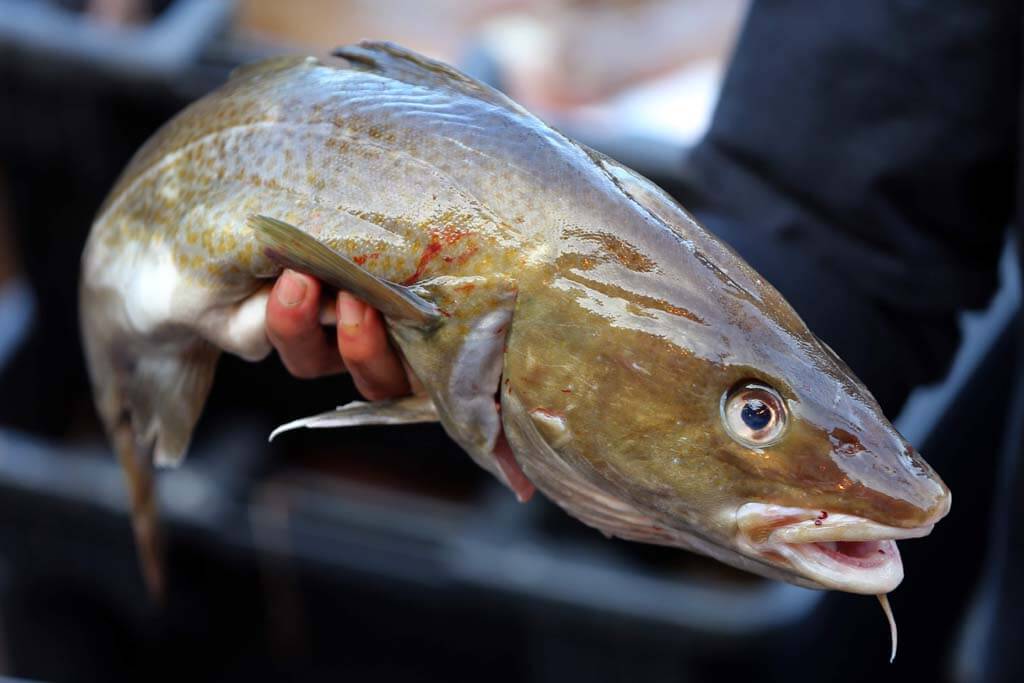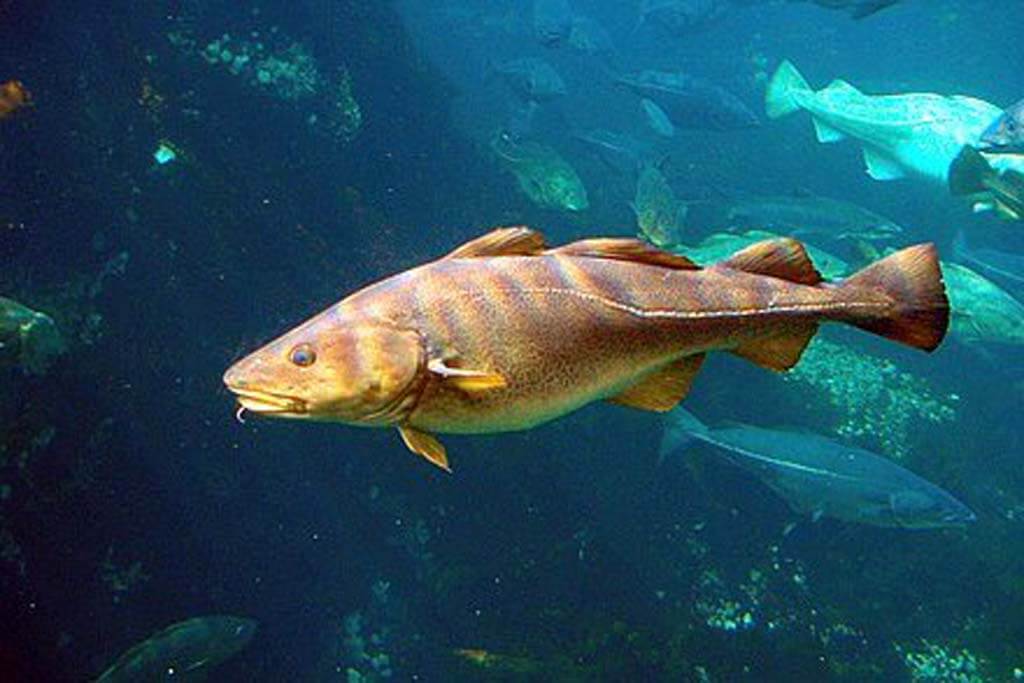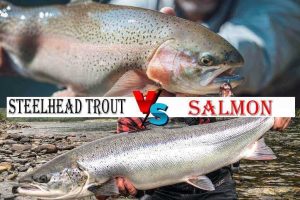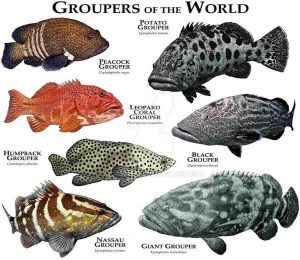If you’re trying to decide whether to buy cod vs haddock, this article will show you the similarities and differences between the two fish. Cod and Haddock are both low-fat and nutritious alternatives to red meat. Haddock vs Cod – Which One is Right For You?

- Haddock vs Cod – Which One is Right For You?
Both fish are also sustainable and free from unnecessary contaminants. You should choose one over the other based on taste or nutritional value, or for sustainability reasons, read on to find out which one is right for you!
Similarities between Haddock vs Cod
Haddock and cod are closely related, with both being white-finned fish that reside in the North Atlantic Ocean. Although they are similar in appearance, both have distinct tastes and nutritional value. In addition to their similar appearance, the two also belong to the same family, Melanogrammus. While cod and haddock are caught in the same areas, their locations are distinct enough to make them distinctive in their own right.

- Haddock Fish
Both fish are cold-water fish that live in the same region, which makes them both great choices for people living on the coasts of the Atlantic. They both have similar textures and fillets, but they differ slightly in their taste and nutritional value. If you’re choosing between haddock and cod, consider your preferences before making your next meal. Cod is generally fattier than haddock, so it’s best to cook it in its own broth to get the most out of it.
The main differences between Haddock and cod can be found in how the two fish are cooked. While both have a mild fishy flavor, the taste of haddock is sweeter and stronger. Cooks prefer cooked haddock to cod because of its stronger, sweeter taste. Another difference between the two fishes is the flaky texture of their flesh. Haddock has a firmer texture and a larger flaky portion than cod, but both are equally delicious and nutritious.
Haddock vs Cod Appearance
Although both fish have similar sizes, textures, and flavors, there are a few key differences. Cod is slightly larger and has darker, speckled scales while haddock is pale with a dark blotch at the top of the pectoral fin.
The difference in appearance is mainly visible in the color. Cod is grey-brown with a white lateral line. Haddock, on the other hand, has a grey-brown or black body color. They are both edible and have similar textures and flavors, though Haddock tends to be slightly more tender and hasty-tasting fillets. So which is better for the kitchen?

- Cod Fish
As far as cost is concerned, cod is more expensive than haddock. It costs approximately $1 more per pound. However, it is worth mentioning that cod may be harder to source because of overfishing.
Despite the price difference, both cod and haddock are inexpensive and have similar nutritional values. Ultimately, it will be down to personal preference on how to prepare the fish. For the most part, you should be able to cook either fish with ease and enjoy the results.
Size
While there are many differences between cod and haddock, they are related by their glycemic index and skin color. Compared to other types of fish, both cod and haddock are healthier choices. Despite the differences in size, both fish contain essential proteins, minerals, vitamins, and amino acids that help us stay healthy and strong. Unfortunately, both cod and haddock are high in mercury and allergens.
The size of cod is slightly smaller than the size of haddock. Cod is also lower in sodium and has a lower glycemic index. Haddock is a better choice for those who want more seafood but do not want it to be too fishy or overpowering. Fortunately, neither fish contains significant amounts of fiber. Both are equally high in vitamins A, B6, D, and E. Haddock has higher levels of the amino acids histidine and phenylalanine than cod.
As far as size goes, cod is lower in calories than haddock and is often preferred for those who eat a low-calorie diet. Both contain no carbohydrates, which makes them good options for those who are diabetic or on a low-carbohydrate diet. Although both are high in protein, they contain much less fat than red meat. Cod contains less fat than haddock, which makes it more appealing for people who want to eat fish regularly.
Haddock vs Cod Habitat
The lateral line of cod and haddock is distinctly different, as is the primary dorsal fin. Cods can be caught in shallower waters, while haddocks prefer cooler, less saline water. Though the two species are related, their habitats are different enough to warrant separate habitat descriptions.

- Haddock vs Cod Habitat
The habitat of cod and haddock is located in the North Atlantic Ocean. They live off both shores of Newfoundland and Cape May, New Jersey. They are happiest in areas where the water temperature is in the mid-thirties to fifties degrees. The waters where they live are rich in nutrients and are a prime environment for these fishes. There are several types of habitats that cod and haddock use for reproduction.
In the North Atlantic, they co-occur. Cod feeds on benthic prey and haddock on clams. The two species have overlapping diets as larvae. Cods feed on a broader range of benthic prey while haddocks feed mainly on crustaceans. They are also likely to be competitors in the same habitat. In the future, they will probably co-exist.
Haddock vs Cod Distribution
If you are following a low-calorie diet, you may be wondering what the differences between Cod and Haddock are. While both fish are high in protein, they contain different amounts of fat. Cod contains less fat than Haddock, and both are suitable for vegetarians and people with diabetes. Both are low in saturated fats and contain less cholesterol than red meat.
Cod has a distinctive white or cream line that separates it from haddock. Haddock, on the other hand, is black or dark grey. Although the two fish are similar in size and composition, they look different. Haddocks are slightly larger than cod, but they have different coloring patterns.
How to catch Haddock vs Cod
If you are a fisherman, you might be wondering how to catch Cod vs Haddock. Cod is larger than haddock, with brown and green speckled skin and a white stripe down the middle. It is firmer and milder in flavor and is the perfect choice for those who want to eat more seafood. Here are some tips to help you decide which one to catch:

- How to catch Haddock vs Cod
First of all, it’s important to recognize the differences between the two fish. Both Cod and Haddock are found in the Atlantic Ocean. Cod is commonly found off the coast of North America and just north of the English Channel, while haddock can be found off the coast of Greenland. Haddock can be found farther north, however, and can be caught from the western coast of France to Iceland.
Haddock is also smaller than cod. Cod has speckled grey-brown skin and a long, pointed dorsal fin. Haddock has a dark gray or black lateral line. They are also similar in size, but Cod is larger. Cod fillets are thicker and meatier than those of haddock. They’re both good for your dinner. If you’re planning to grill or smoke your Cod, make sure that you know how to identify the differences in appearance.
Maybe you also: Smallmouth Vs Largemouth Bass: Full Guide
Taste
If you are a fish lover, you may be wondering how cod tastes compared to haddock. The two whitefish are very similar in appearance, but the taste of cod is mild while haddock’s is slightly stronger. While neither fish is particularly sweet, both are mild in flavor and are suitable for most people. For those who are unsure about which fish to choose, you can read about the differences between cod and haddock.

- Haddock vs Cod – Taste
The two white fish are similar in size, texture, and taste, and they are both fairly inexpensive. The differences are in the colors of the two fish, their appearances and fin shapes, and their taste. The difference in taste is not nearly as dramatic as that between cod and haddock, so make sure to check out both before choosing a fish to cook.
Cod has a milder, more delicate flavor that pairs well with salt and vinegar. Haddock is great for fish and chips and has a firm to tender texture. The EPA warns against consuming fish containing this substance, which can be harmful to your health. Haddock, on the other hand, has no such warning.
Haddock vs Cod Nutritional value
While both have similar nutritional benefits, the difference in the fatty acid composition makes cod the healthier choice. Cod has more omega-3 fatty acids and lower cholesterol, and is higher in protein. Both are higher in selenium and B vitamins, but haddock is lower in sodium. Cod is recommended for people on a low-calorie diet, while haddock is better for those on a high-fat diet.
In terms of nutritional value, cod is higher in vitamin C, and it has lower sodium and glycemic index. Both fish are high in polyunsaturated and monounsaturated fatty acids, but both are low in fiber. Cod is higher in vitamin A, B vitamins, and protein, while haddock is higher in phosphorus and choline. However, both fish lack vitamin B9 (folate).
Haddock vs Cod Cost for buying
When it comes to buying fish, there are a few differences between cod and haddock. Cod is a white fish, while haddock is blackish. They belong to the same family, the Gadidae, but are different species. Cod is smaller and contains less fat than haddock, making it a better option for those who follow a low-calorie diet. Haddock is also a lower-fat alternative to red meat, while both fish are excellent sources of protein.
Cod is low in cholesterol and sodium, and has more polyunsaturated fats than haddock. It also has a better taste and texture. The difference in the price of cod vs haddock is less than a dollar. Haddock costs a little more than cod but is worth it if you enjoy the taste.
Sustainability
In Cod vs Haddock sustainability, the key difference is the taste. Haddocks are milder than cods, and they are both low in calories. Both are recommended protein sources, and both are lower in fat than red meat. Cod is a lower-calorie fish, while Haddock is a higher-fat substitute for red meat. For low-carbohydrate diets, cod is preferred.
Diddock is a saltwater white fish that ranges from one to three feet long. While both cod and haddock are delicious, both species are over-fished. Haddock is much less overfished and has an almost equal mineral score. It is a delicious option for fish lovers who prefer a fresher taste and want to do their part in maintaining the health of the oceans. Diddock can be caught in Canada, Norway, and Iceland, and is even available in the Aleutian Islands.
Haddocks are fast-growing fish that can live as long as ten years. NOAA Fisheries scientists usually catch haddock when they are between three and seven years old and weigh between two to seven pounds. Haddocks begin reproducing between one and four years of age and are about one to three feet long. They can live up to 10 years, but most were caught at three to seven years of age.
Which is Better between Haddock vs Cod
Did you know that haddock is much milder than cod? Although both have a mild fishy flavor, most people don’t find either to be offensive. Cod is generally milder, with a sweet taste, but some people may find the haddock flavor to be more pronounced.
Although cod has a more distinctive flavor, some people may not find the difference in flavor to be substantial enough to make a significant distinction in their meals.
Conclusion about haddock and cod
While both types of fish are high in omega-3 fatty acids, they contain different amounts of saturated fats. Haddock contains more of these fats, while cod has less than half the amount. However, both types of fish are still good choices for anyone on a low-fat diet. Both varieties are high in protein and low in fat, making them excellent choices for those looking for a lower-fat alternative to red meat.
Maybe you also: Steelhead Trout vs Salmon – What is the Difference?














